Globally, artificial intelligence (AI) is quickly taking the lead in many industries. AI promises to transform company operations by improving decision-making and automating jobs. However, the complexity of AI is currently one of the main issues facing the sector. Small firms frequently find it difficult to access sophisticated AI systems, but huge organizations with ample resources can do so with ease.
If AI is to genuinely democratize innovation and corporate success, it needs to be easy enough for smaller businesses to utilize. This is why AI solutions must become more widely available and simpler to use, not only for large organizations but also for small and medium-sized businesses (SMEs).
- Leveling the Playing Field
In the past, big businesses having access to specialized AI teams and vast volumes of data have been able to use AI to obtain a competitive advantage. However, small organizations frequently lack the same resources, such as a large volume of data, an expensive AI platform, or a professional data science team.
Small firms can also profit from AI’s power by developing more straightforward AI solutions that don’t require complex technical knowledge or large datasets. They may level the playing field between smaller firms and their larger competitors by using it to streamline their operations, improve consumer experiences, and improve decision-making.
- AI Should Solve Problems, Not Create Them
Although the goal of artificial intelligence (AI) is to simplify operations and improve corporate operations, many small businesses may find that the complexity of AI technologies outweighs the benefits. It might take a lot of time and money for them to learn how to set up and manage AI systems. Overly complex AI solutions may wind up causing more issues than they resolve.
Businesses may incorporate AI into their workflows without requiring extensive technical knowledge thanks to simplified AI solutions that lower the hurdles to integration. For instance, non-experts may manage AI platforms with intuitive interfaces and clear analytics, enabling smaller teams to benefit from AI in the same way as larger enterprises.
- Cost Efficiency
Numerous AI solutions are expensive, particularly those that call for a great deal of customization. For smaller businesses with tighter resources, this can be a turnoff. Small firms may fall behind in an increasingly competitive market if artificial intelligence (AI) is limited to big businesses with higher budgets and access to massive data.
AI suppliers can lower implementation costs by emphasizing simplicity, which will increase the affordability and accessibility of AI technology for SMEs. The key to making AI practical for companies of all sizes is to provide pre-built, off-the-shelf AI solutions that are simple to integrate and scale as a firm grows.
- Enhancing Innovation in the SME Sector
In any economy, small and medium-sized enterprises are frequently among the most creative. One of the secrets to their success is their capacity for quick adaptation and the creation of new market segments. However, because of its complexity, AI may limit this promise by keeping people from exploring or making the most of AI technologies.
These companies may use the power of AI without having to pay for professional staff or pricey consultants thanks to simplified AI solutions. Small businesses are more likely to innovate and apply AI in unique ways as it becomes easier to understand and use, which will increase their agility and creativity.
- Improving Decision-Making with Limited Data
A common misperception regarding artificial intelligence is that it needs a lot of data to function well. Large datasets are undoubtedly helpful, but small businesses frequently lack access to them. Businesses that lack large amounts of data but yet wish to use AI for decision-making can benefit from simple AI solutions that are intended to operate with lesser datasets.
AI-driven analytics solutions that prioritize quality over quantity, or machine learning models tailored to specific data circumstances, can assist small businesses in making well-informed decisions without requiring them to invest much in extensive data collection projects.
- Building Trust and Confidence in AI
Because AI can be daunting and opaque, many small businesses are reluctant to implement it. They may be hesitant to incorporate AI into their operations since they do not fully comprehend how it operates. Trust in these systems can be increased by using straightforward descriptions of how simpler AI solutions operate.
Business owners and their teams feel more comfortable utilizing AI when it is simple to comprehend and apply, eventually leading to a larger range of industries adopting AI.
- Empowering the Future of Work
Work in the future will be more digital and data-driven. As automation and AI take on more operational responsibilities, these tools must be accessible not just to giant organizations but also to the small businesses that make up the backbone of many economies.
Small teams can increase productivity with simplified AI by automating repetitive operations, streamlining their supply chains, and providing better customer service—all without having to expand their workforce or level of technical skill significantly. By doing this, workers are free to concentrate on more strategic and innovative work, which maximizes the benefits of collaborating with AI.
Conclusion: Simplicity is the Key to AI Adoption for All
For AI to achieve its full potential across industries, it must be made accessible to everyone, not just large companies with the resources to handle its complexity. Small businesses, in particular, stand to gain from simpler, more affordable, and user-friendly AI solutions.
AI developers can democratize the technology by reducing technical barriers, lowering costs, and offering AI systems that work even with limited data. This not only ensures that businesses of all sizes can compete on a more even footing but also fosters innovation and growth in sectors that may otherwise be left behind.

